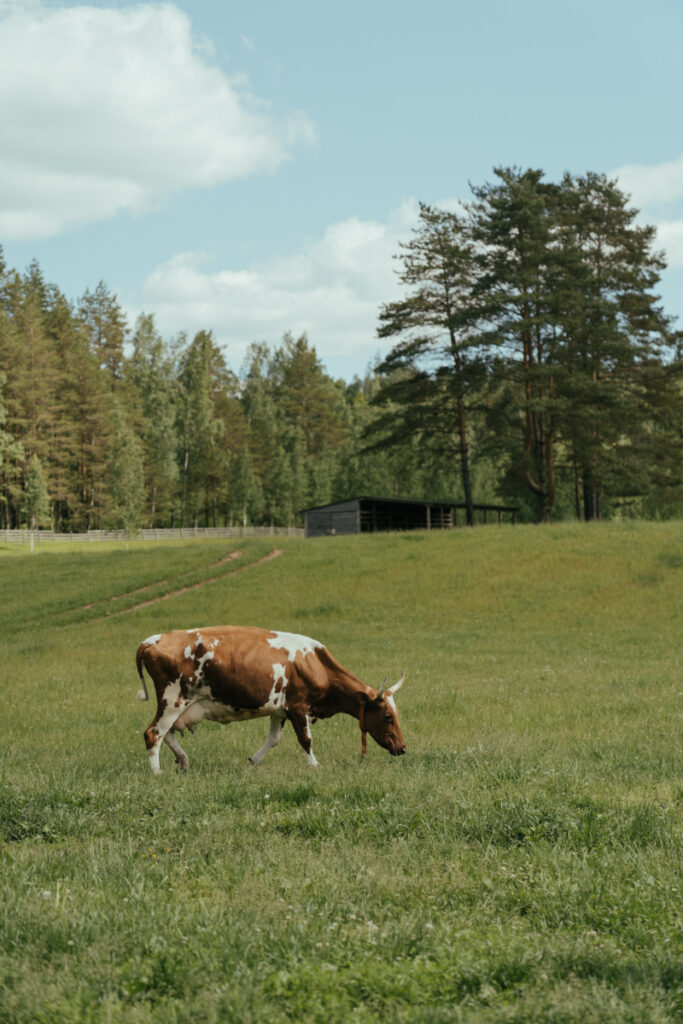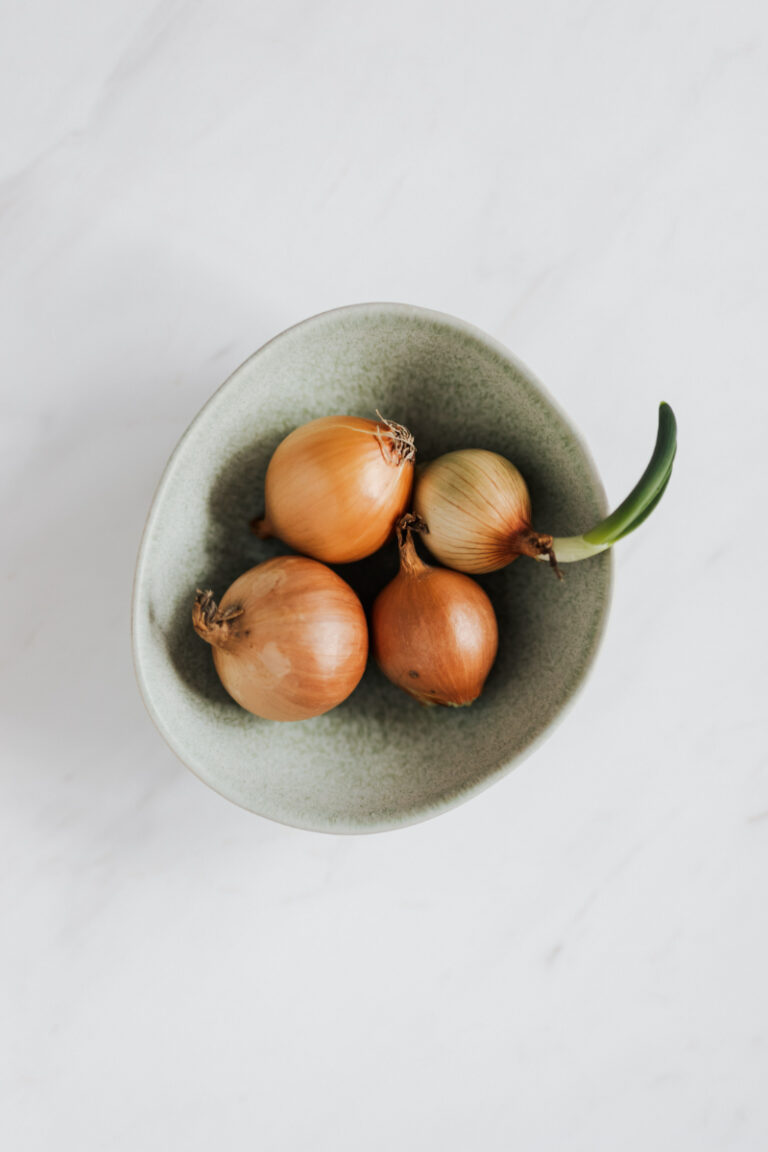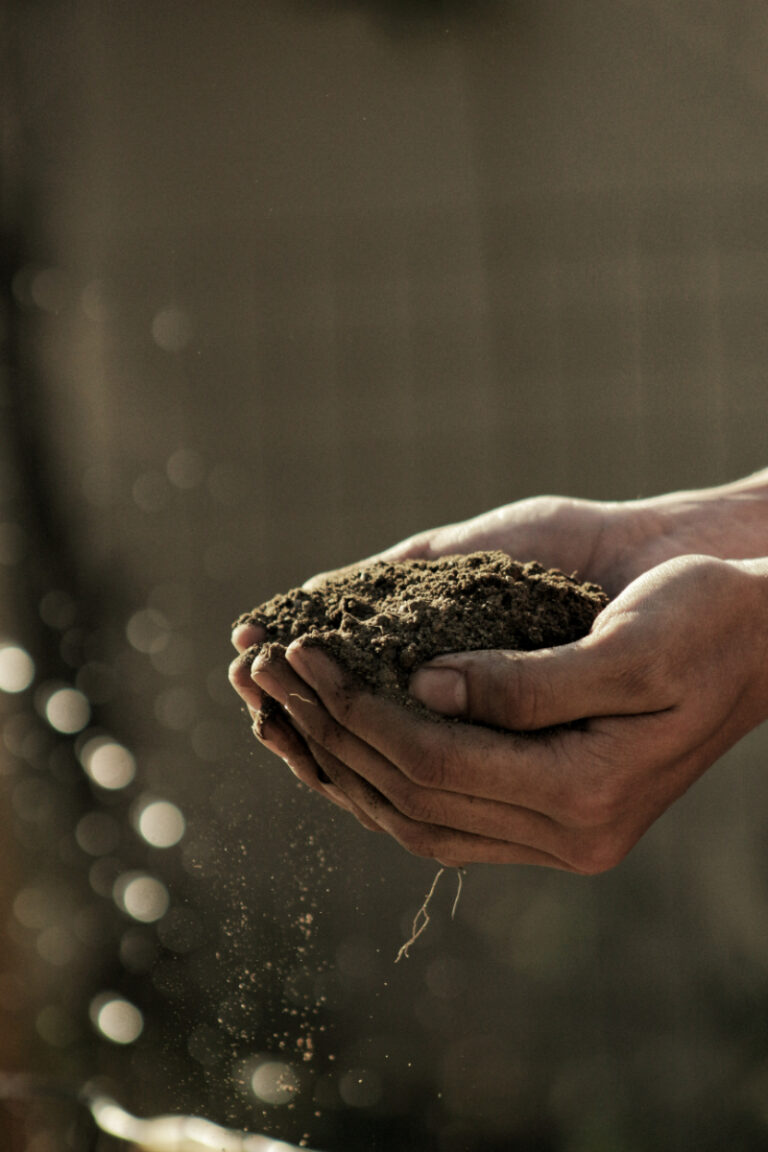Cow Manure vs Mushroom Compost: What’s The Difference?
In the world of gardening and farming, the choice of fertilizer can make a significant difference in the health and productivity of your plants.
Organic fertilizers, in particular, have gained popularity due to their sustainability and beneficial effects on soil structure and plant growth. Two such organic fertilizers that are often discussed in the gardening community are cow manure and mushroom compost.
The use of cow manure and mushroom compost in gardening is not a new concept. For centuries, these natural materials have been used to improve soil fertility, enhancing the growth and yield of various plants.
Both cow manure and mushroom compost offer a range of nutrients that are essential for plant growth, but each has its unique properties and benefits.
This guide will delve into the specifics of cow manure and mushroom compost, comparing their nutrient content, benefits, drawbacks, usage recommendations, environmental impact, and cost. By understanding these aspects, you can make an informed decision about which type of organic fertilizer is best suited for your gardening or farming needs.
Cow Manure vs Mushroom Compost: A Comprehensive Comparison

Understanding the Basics
Before diving into the comparison, it’s important to understand what exactly cow manure and mushroom compost are and how they are produced.
Cow Manure
Cow manure, as the name suggests, is the waste product of cows. It is a type of animal manure that is commonly used in gardening and farming due to its nutrient-rich content. When cows digest their food, they process a large amount of organic matter, and the byproduct of this digestion is their manure.
The composition of cow manure can vary depending on the diet of the cow, but in general, it is rich in nitrogen, phosphorus, and potassium – three primary nutrients that plants need to thrive. In addition to these macronutrients, cow manure also contains micronutrients such as calcium, magnesium, and sulfur.
It’s worth noting that fresh cow manure should not be applied directly to plants as it can burn them and potentially harbor pathogens. Instead, it should be composted or aged before use.
Mushroom Compost
On the other hand, mushroom compost, also known as spent mushroom substrate or mushroom soil, is a byproduct of the mushroom cultivation process.
After mushrooms are harvested, the remaining growing medium, which consists of a blend of materials such as wheat straw, peat moss, corn cobs, cottonseed meal, and gypsum, is often recycled into compost.
Mushroom compost is generally rich in organic matter and holds a good balance of nutrients. However, the exact nutrient content can vary based on the specific materials used in the mushroom cultivation process.
Like cow manure, mushroom compost also improves the soil structure, making it more conducive for plant growth. It enhances the soil’s water-holding capacity, promotes beneficial microbial activity, and helps in suppressing certain plant diseases.
Nutrient Content
Understanding the nutrient content of both cow manure and mushroom compost can help determine which is the best fit for your specific gardening or farming needs.
Nutrients in Cow Manure
Cow manure is known for its rich content of three primary nutrients that plants need: nitrogen (N), phosphorus (P), and potassium (K). These nutrients are essential for plant growth, with nitrogen promoting leafy growth, phosphorus supporting root development and flowering, and potassium aiding in overall plant health and disease resistance.
In addition to these macronutrients, cow manure also contains a variety of micronutrients, including calcium, magnesium, and sulfur, though these are present in smaller quantities. The nutrient levels can vary depending on the cow’s diet and the manure’s age.
It’s important to note, however, that fresh cow manure has high levels of ammonia that can burn plants if applied directly. Therefore, it’s recommended to compost or age the manure before applying it to the soil.
Nutrients in Mushroom Compost
Mushroom compost, on the other hand, typically contains a balanced blend of nutrients. The exact nutrient content can vary depending on the specific materials used in the mushroom cultivation process. However, it generally includes a good amount of nitrogen, phosphorus, and potassium, as well as other nutrients like calcium and magnesium.
One key advantage of mushroom compost is that it usually has a neutral to slightly alkaline pH, making it suitable for a wide range of plants that prefer these conditions. It also has a high organic matter content, which can significantly improve the soil structure and its ability to retain moisture and nutrients.
However, it’s worth noting that mushroom compost can sometimes contain high levels of soluble salts, which could be harmful to salt-sensitive plants. Therefore, it’s advisable to test the compost and use it judiciously, especially when growing plants that are sensitive to salt.
Benefits and Drawbacks
Both cow manure and mushroom compost come with their own set of benefits and drawbacks. Understanding these can help gardeners and farmers make an informed decision about which organic fertilizer to use.
Benefits of Cow Manure
Cow manure offers a range of benefits for your soil and plants:
- Rich in Nutrients: It is a good source of essential nutrients, including nitrogen, phosphorus, and potassium, as well as several micronutrients that promote plant growth and health.
- Improves Soil Structure: Cow manure can significantly improve the soil structure by increasing its ability to retain moisture and nutrients, promoting root growth and enhancing the soil’s overall fertility.
- Promotes Beneficial Microorganisms: The organic matter in cow manure provides food for beneficial microorganisms in the soil, which play a crucial role in breaking down organic material into nutrients that plants can use.
Drawbacks of Cow Manure
Despite its benefits, there are also some potential drawbacks to using cow manure:
- Risk of Pathogens: Fresh cow manure can contain harmful pathogens like E. coli, which can pose health risks if not properly composted or aged before use.
- Potential for Weed Seeds: Cow manure may contain weed seeds, which could lead to unwanted weed growth in your garden or farm.
- Variable Nutrient Content: The nutrient content of cow manure can vary widely depending on the cow’s diet, making it somewhat unpredictable as a fertilizer.
Benefits of Mushroom Compost
Mushroom compost also has several benefits:
- Balanced Nutrient Profile: Mushroom compost generally contains a balanced blend of nutrients, making it a good all-around soil amendment.
- Improves Soil Structure: Like cow manure, mushroom compost also improves the soil structure, enhancing its water-holding capacity and nutrient retention.
- Disease Suppression: Some studies suggest that mushroom compost can help suppress certain plant diseases, potentially improving plant health and yield.
Drawbacks of Mushroom Compost
However, mushroom compost also has some potential drawbacks:
- High Salt Content: Mushroom compost can sometimes contain high levels of soluble salts, which can be harmful to salt-sensitive plants.
- Alkaline pH: The pH of mushroom compost is typically neutral to slightly alkaline, which may not be suitable for acid-loving plants.
- Potential for Allergens: Mushroom compost can sometimes cause allergic reactions in people who are sensitive to mushrooms or mold spores.
Application and Usage
Understanding how and when to use cow manure and mushroom compost can help you maximize their benefits and minimize any potential drawbacks. Here’s what you need to know about applying these organic fertilizers in your garden or farm.
Using Cow Manure
As mentioned earlier, fresh cow manure should not be applied directly to plants due to its high ammonia content which can burn plants and potential presence of pathogens. Instead, it should be composted or aged before use.
To use cow manure as a fertilizer, follow these steps:
- Composting/Aging: Collect the cow manure and allow it to compost or age for at least six months. This process will allow the manure to break down and reduce the risk of burning plants or transmitting pathogens.
- Application: Once the cow manure is well-composted or aged, it can be mixed into the soil at the start of the planting season. Use a garden fork or tiller to mix the manure into the top few inches of the soil.
- Maintenance: Throughout the growing season, additional composted cow manure can be added as a top dressing around plants to provide a slow-release source of nutrients.
Using Mushroom Compost
Mushroom compost can be used in a variety of ways in the garden or farm, including as a soil amendment, mulch, or potting mix ingredient. Here’s how to use it:
- Soil Amendment: Mushroom compost can be mixed into the soil at the start of the planting season to improve its structure and nutrient content. Use a garden fork or tiller to mix the compost into the top few inches of the soil.
- Mulch: Mushroom compost can also be used as a mulch around plants. Apply a 2-3 inch layer of compost around the base of your plants to help retain soil moisture, suppress weeds, and slowly release nutrients into the soil.
- Potting Mix Ingredient: Mushroom compost can be mixed with other ingredients like peat moss, vermiculite, or perlite to create a nutrient-rich potting mix for container gardening.
However, it’s important to note that due to the potentially high salt content in mushroom compost, it should be used judiciously, especially when growing salt-sensitive plants. It may also not be suitable for acid-loving plants due to its neutral to slightly alkaline pH.
Environmental Impact
The use of organic fertilizers like cow manure and mushroom compost can have significant environmental implications. It’s important to consider these impacts when deciding which type of fertilizer to use in your garden or farm.
Environmental Impact of Cow Manure
Cow manure, as a natural byproduct of livestock farming, is a readily available resource that can be recycled into a valuable soil amendment.
This not only reduces waste but also decreases the need for synthetic fertilizers, which are often energy-intensive to produce and can contribute to water pollution when overused.
However, there are also potential environmental downsides to using cow manure. For instance, if not properly managed, manure can contribute to water pollution through nutrient runoff, which can harm aquatic ecosystems.
Additionally, the process of breaking down cow manure releases greenhouse gases like methane and nitrous oxide, which contribute to climate change.
Environmental Impact of Mushroom Compost
Mushroom compost, on the other hand, is a byproduct of the mushroom cultivation process. Using this compost in gardening or farming helps to recycle these waste materials, reducing the need for landfilling and contributing to a more circular economy.
Like cow manure, mushroom compost also reduces the need for synthetic fertilizers, lowering the environmental footprint of your gardening or farming practices.
Moreover, some research suggests that the use of mushroom compost can help suppress plant diseases, reducing the need for chemical pesticides.
However, it’s worth noting that the production of mushroom compost can also have environmental impacts. For instance, it requires input materials like peat moss, the extraction of which can damage peatland ecosystems. Additionally, the composting process can release greenhouse gases.
Cost Considerations
The cost of cow manure and mushroom compost can vary significantly depending on various factors such as your location, the quantity you need, and whether you’re buying it in bulk or in bags. Here’s what you need to know about the cost considerations of these two organic fertilizers.
Cost of Cow Manure
Cow manure is generally one of the most affordable types of organic fertilizer. The cost can be very low or even free if you have access to a local farm where you can collect the manure yourself. However, if you’re buying bagged, composted cow manure from a garden center or online, you can expect to pay for the convenience.
Keep in mind that while cow manure is a cost-effective option, it does require some work in terms of composting or aging before use. Additionally, the nutrient content can be variable, so you may need to supplement with other fertilizers depending on your soil needs.
Cost of Mushroom Compost
Mushroom compost tends to be more expensive than cow manure, but it’s still generally more affordable than many types of synthetic fertilizer. The cost can vary widely depending on the quality and whether you’re buying it in bulk or bags.
One potential advantage of mushroom compost is that it’s usually ready to use straight out of the bag, saving you the time and effort of composting. However, due to its potentially high salt content and alkaline pH, you may need to use it more judiciously or mix it with other materials, which could add to the overall cost.
Conclusion
Both cow manure and mushroom compost are valuable organic fertilizers that can significantly improve soil fertility and plant health. They each offer a range of nutrients, improve soil structure, and contribute to a more sustainable gardening or farming practice by recycling waste products.
However, they also have their unique characteristics, benefits, and drawbacks. Cow manure is generally rich in nutrients but requires composting or aging before use and may contain weed seeds or pathogens.
Mushroom compost, on the other hand, typically has a balanced nutrient profile and is ready to use, but it can contain high salt levels and have an alkaline pH.
In terms of environmental impact, both options can help reduce reliance on synthetic fertilizers and recycle waste, but they can also contribute to greenhouse gas emissions and, in the case of cow manure, potentially to water pollution if not properly managed.
The choice between cow manure and mushroom compost will depend on your specific needs and circumstances, including your soil type, the plants you’re growing, your budget, and your access to these materials. It’s always a good idea to test your soil before deciding on any fertilizer to understand its current nutrient levels and pH.






